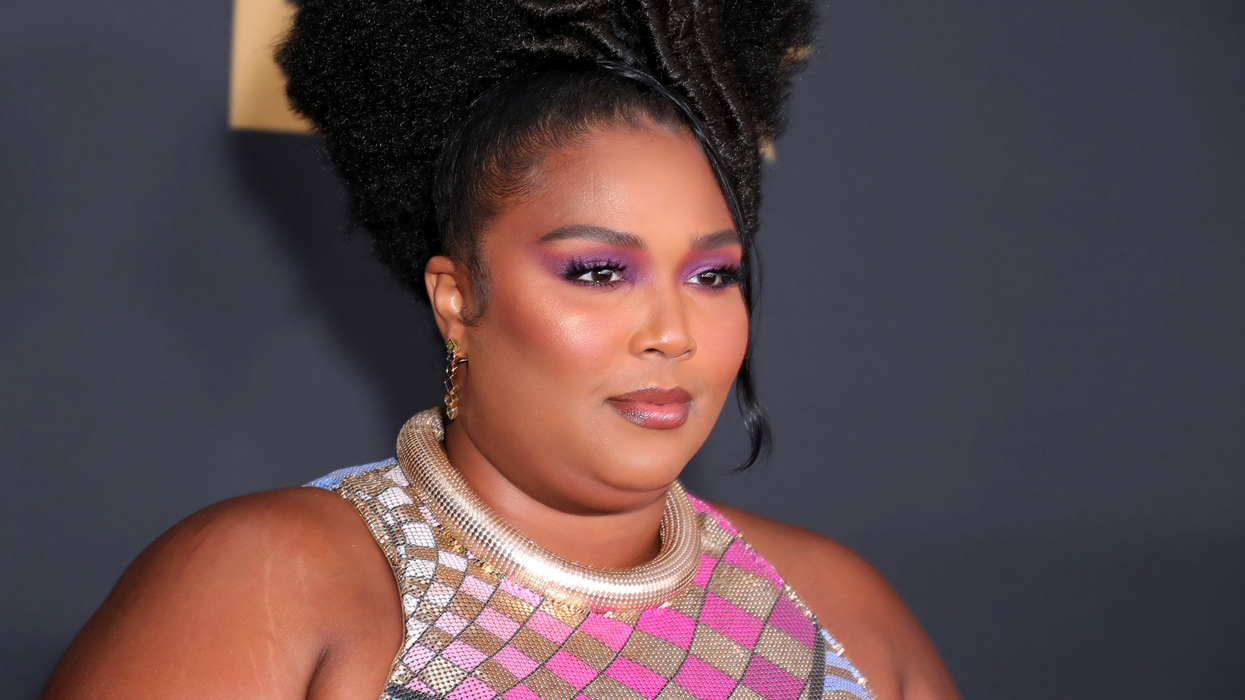Iana Murray
Sep 25, 2020

Getty
As we all know, Lizzo is one hundred percent that… you know the rest.
The singer graced the cover of the October issue of Vogue and obviously she looked amazing.
Since everything has a discourse attached to it, people still had some thoughts about the cover.
Firstly, the cover itself divided fans.
Fans noted how momentous it is that a plus-sized woman is being celebrated by the magazine, and as Lizzo herself acknowledged, she is the “first big Black woman on the cover” of Vogue. It’s also quite remarkable that the cover is a full body shot, instead of hiding her body in a tight close-up on her face.
The cover is also significant because Vogue, and particularly editor-in-chief Anna Wintour, were once against having anyone other than thin women on the cover. In 1998, Wintour reportedly made the "gentle suggestion" to Oprah Winfrey that she lose weight in order to be on the cover of Vogue. According to Wintour, Oprah agreed and went on a "stringent diet", resulting in one of Vogue's "most successful covers ever".
But Vogue has clearly changed its ways now.
But some fans were unhappy with Vogue’s styling, arguing that it shrouds her body.
Some people also thought it was just a bit boring, considering she’s just standing in front of a grey background.
The response to Lizzo’s Vogue cover follows Simone Biles’ divisive cover from the August issue which was poorly lit and washed out her skin. Both covers raise concerns that simply putting a Black woman on the cover is not enough – magazines also have to do them justice.
The content of the interview itself didn't split opinion quite so much. In Vogue’s interview with Lizzo, which covers everything from Black Lives Matter to the election, the singer also spoke out on the body positivity movement and how it has been “commercialised” by white women:
Now, you look at the hashtag ‘body positive,’ and you see smaller-framed girls, curvier girls. Lotta white girls. And I feel no ways about that, because inclusivity is what my message is always about. I’m glad that this conversation is being included in the mainstream narrative. What I don’t like is how the people that this term was created for are not benefiting from it
She continued:
Girls with back fat, girls with bellies that hang, girls with thighs that aren’t separated, that overlap. Girls with stretch marks. You know, girls who are in the 18-plus club. They need to be benefiting from … the mainstream effect of body positivity now. But with everything that goes mainstream, it gets changed.
The singer instead goes on to say that she is “body-normative” and wants to spread the message that “being fat is normal”.
Fans were quick to praise Lizzo for criticising the body positivity movement.
As Lizzo once said, the truth hurts.
Top 100
The Conversation (0)













